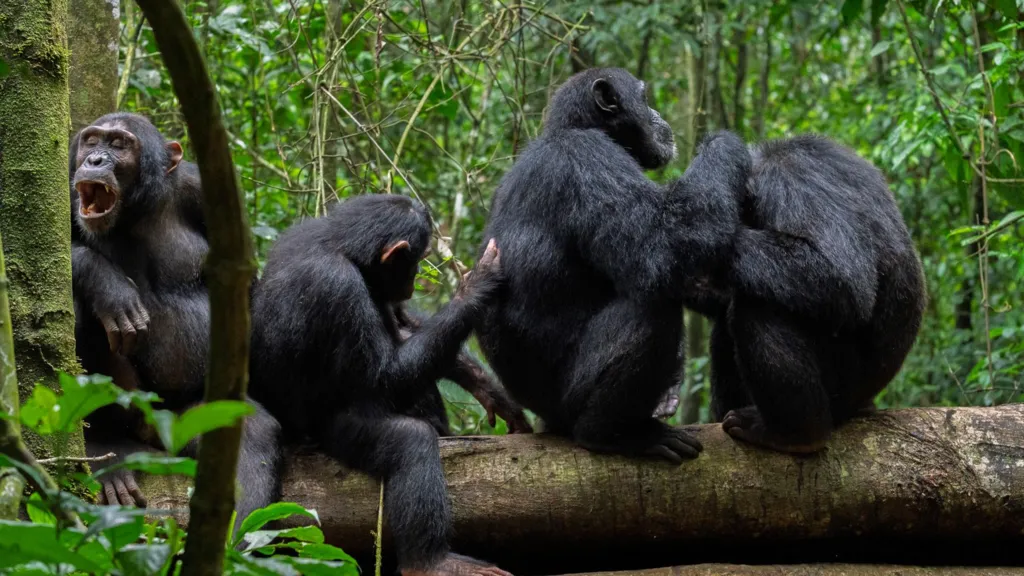In an incredible display of natural intelligence and survival instincts, wild chimpanzees in Uganda’s Budongo Forest have been observed using medicinal plants to treat their injuries. Researchers from the University of Oxford, working alongside local experts, recorded remarkable footage of these primates applying plant-based remedies to open wounds and other ailments, not only on themselves but sometimes on each other.
This groundbreaking study builds upon previous discoveries showing that chimpanzees consume specific plants to self-medicate. The new findings, published in the journal Frontiers in Ecology and Evolution, reveal an even broader and more sophisticated use of what researchers are calling “forest first aid.” Over decades of observations, scientists compiled a comprehensive catalogue documenting various behaviors linked to chimpanzee healing and hygiene.
Dr. Elodie Freymann, the lead researcher, shared insights from her work, noting that chimpanzees have developed an extensive behavioral toolkit to care for themselves when ill or injured. One observed behavior involved a young female chimpanzee chewing up plant material and gently applying it to an injury on her mother’s body. In another striking example, chimps were seen treating the wounds of unrelated members of their group a potential sign of empathy in wild animals.
The research team analyzed long-term anecdotal evidence from logbooks at the forest field station, dating as far back as the 1990s. These handwritten entries by scientists, field staff, and visitors detail unique behaviors such as leaf-dabbing on injuries, helping remove snares, and even cleaning themselves with leaves after defecation.
Earlier studies by the same team identified some of the plants used by chimps for self-medication. Lab tests on these plants confirmed that many possess antibacterial properties, suggesting a strong medicinal basis for the chimps’ choices.
These findings align with recent observations of other great apes using natural remedies, such as a wild orangutan in Borneo using chewed leaves to heal a facial wound and support growing evidence that non-human primates have a functional understanding of natural medicine.
Dr. Freymann emphasized how much we still have to learn from nature, stating, “The more we learn about chimpanzee behavior and intelligence, the more we come to understand how little we as humans know about the natural world. If I were plopped down here in this forest with no food and no medicine, I doubt that I’d be able to survive very long, especially if I were injured or sick. But chimpanzees thrive here because they know how to access the secrets of this place, and how to find all they need to survive from their surroundings.”
The study not only deepens our understanding of chimpanzee intelligence and social behavior but also has implications for future medical research. By studying the natural remedies used by chimpanzees and other wild apes, scientists hope to uncover new compounds that could be developed into effective treatments for humans.













Leave a comment